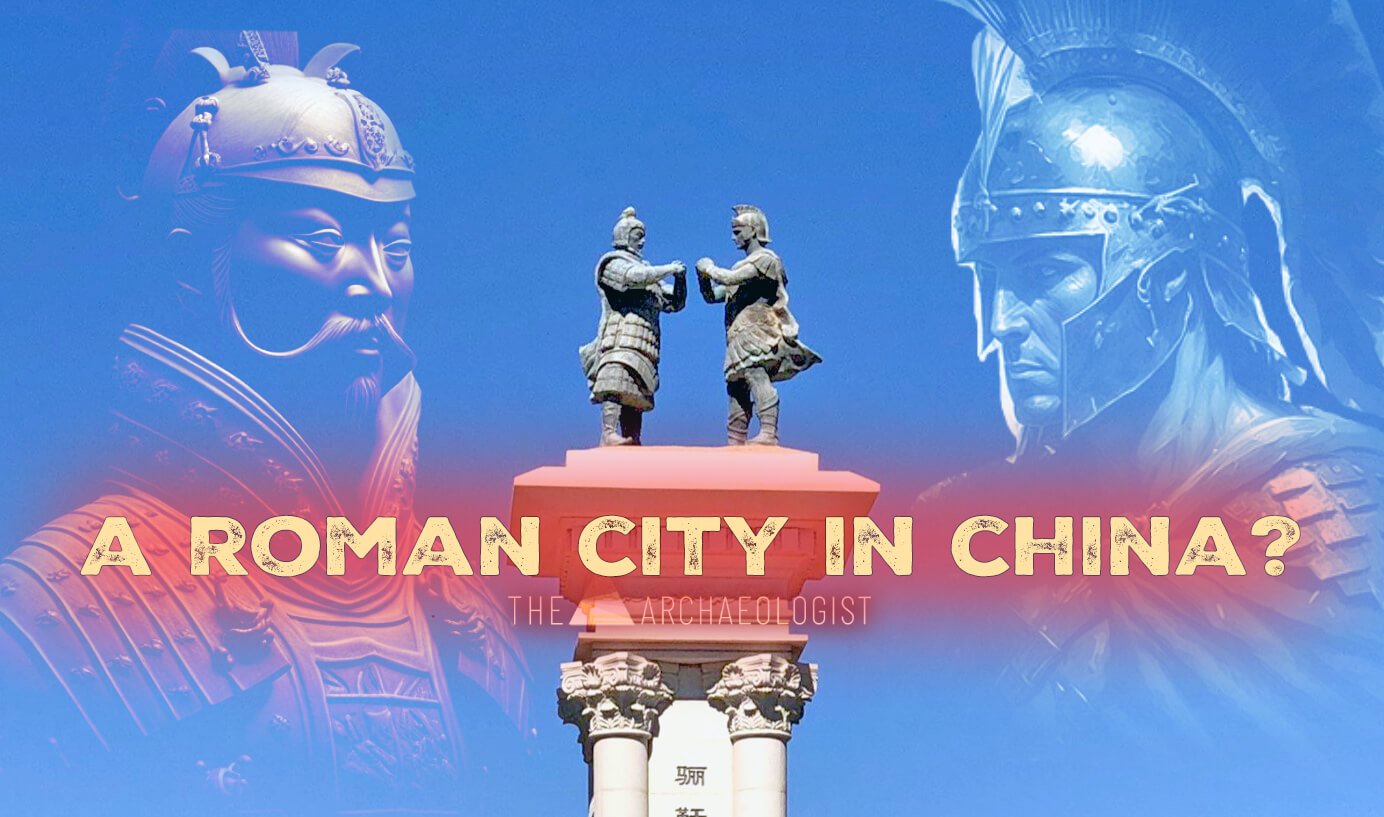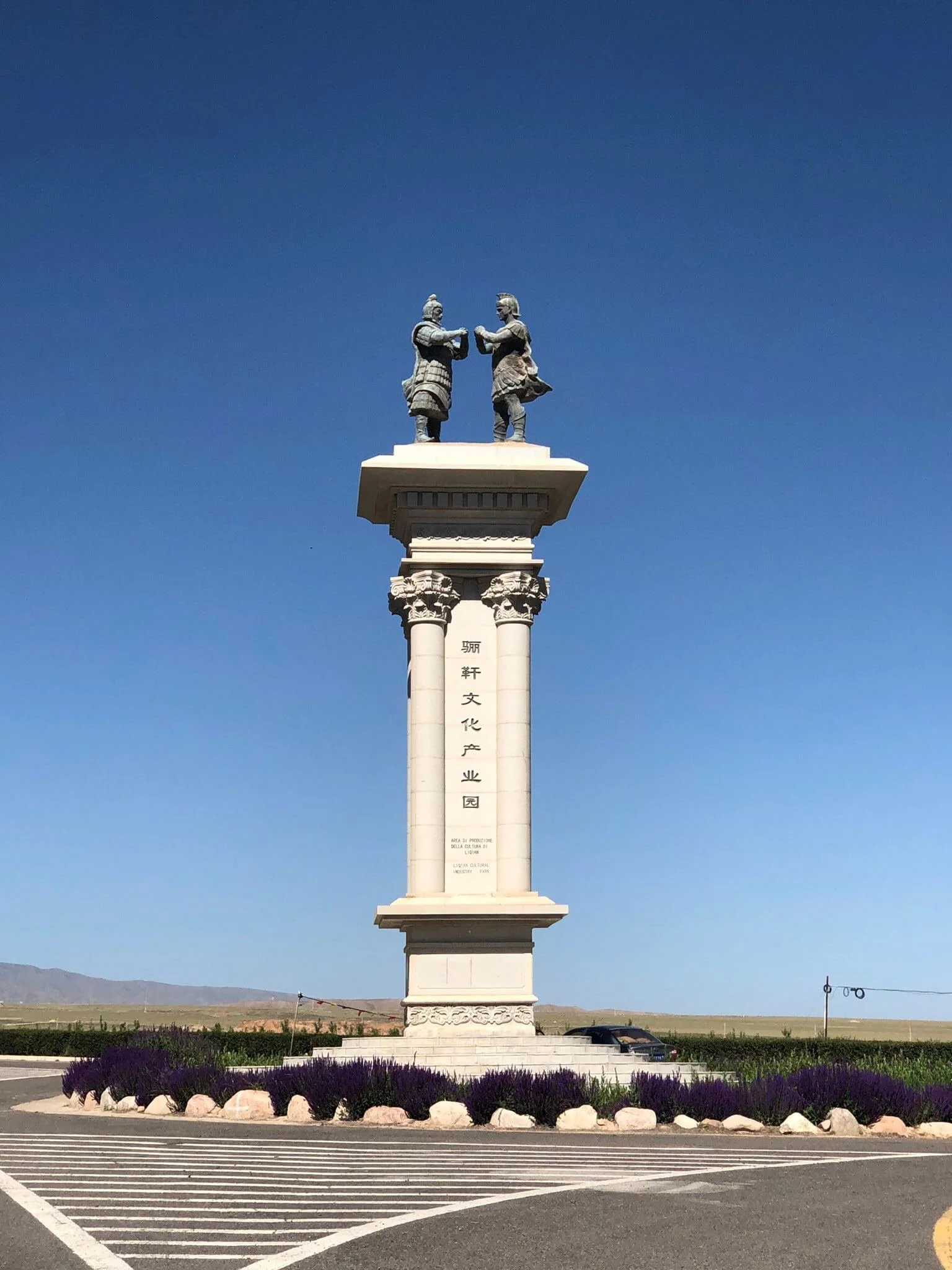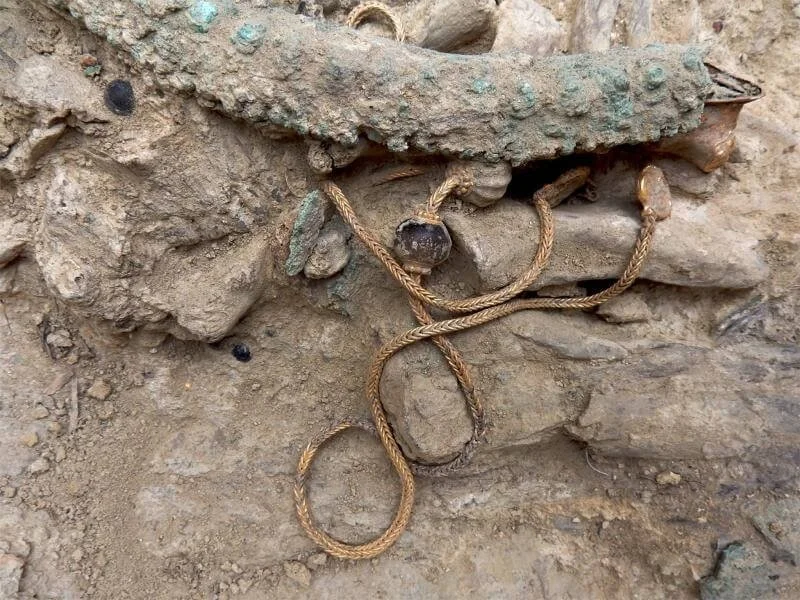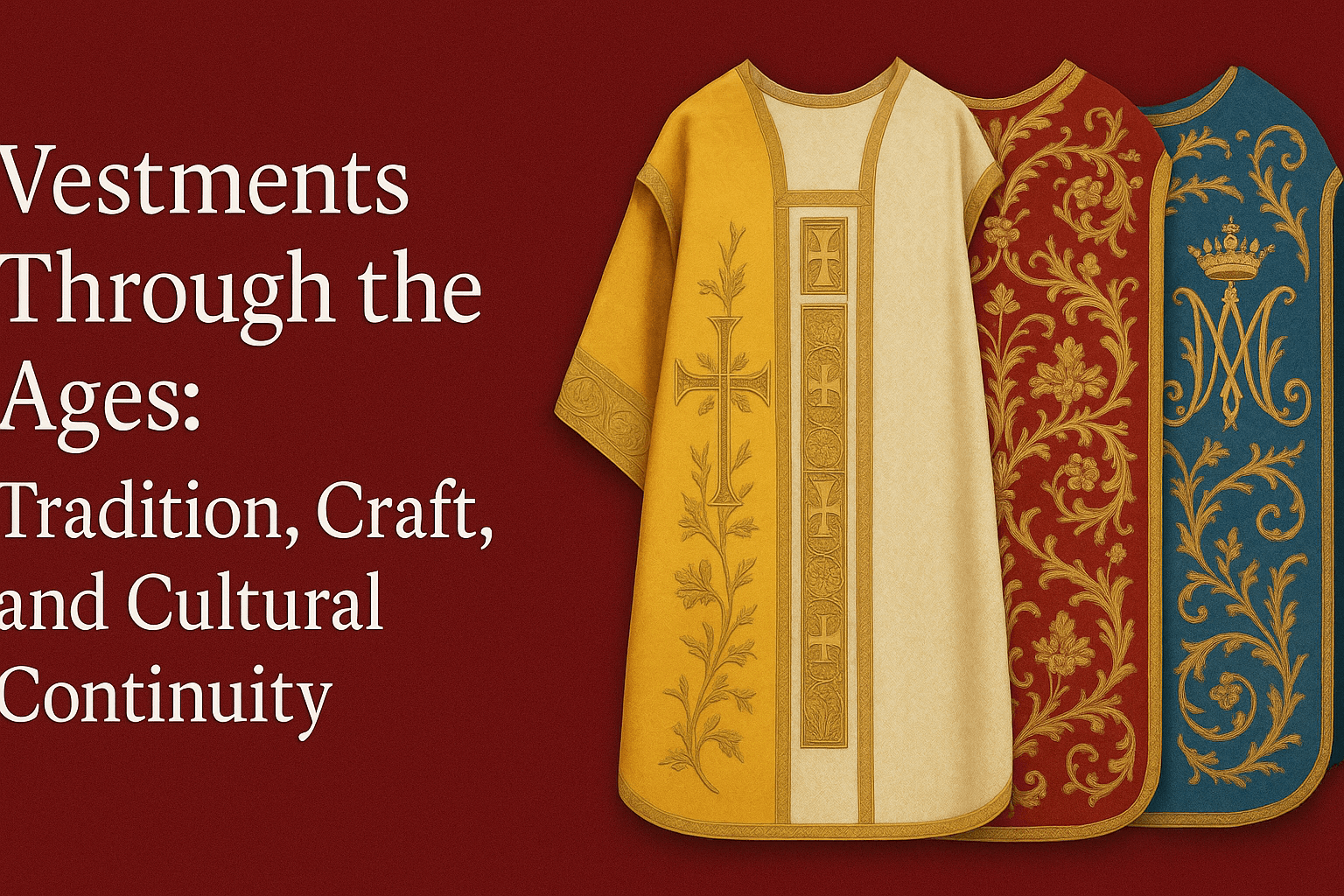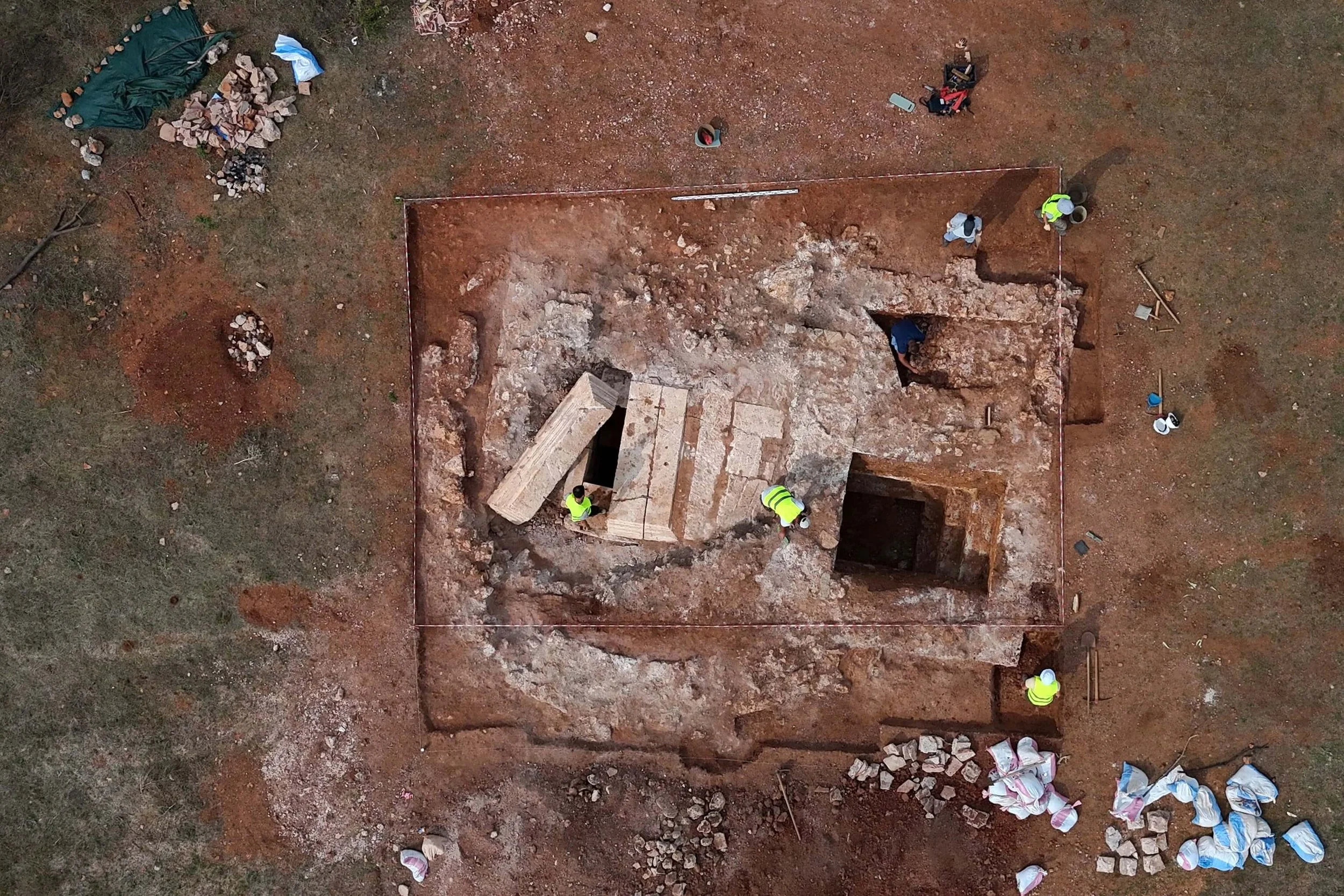BY THE ARCHAEOLOGICAL EDITOR GROUP
Did Roman Legionaries Find a City in China?
In the annals of history, tales of lost legions and ancient encounters between disparate civilizations have always captured the imagination. The city of Liqian in China stands as a testament to such a captivating historical mystery—could it have been founded by Roman legionaries, remnants of a once-mighty army lost to the annals of the East?
The monument that graces Liqian depicts a Chinese and a Roman figure in mutual greeting, a symbolic representation of a tale that intertwines the fates of the Roman and Chinese empires. This beguiling narrative finds its roots in the aftermath of the Battle of Carrhae in 53 BC, where the Romans suffered a devastating defeat at the hands of the Parthians. Ancient chroniclers like Pliny and Horace recount the tale of a captured legion, condemned to toil in the mines of Margiana or to serve as human bulwarks along the distant borders.
Source: Antiokhos in the East
Yet, it is a Chinese chronicle penned twenty years later that fuels this enduring legend, describing foes with combat formations echoing the Roman testudo—a tactical formation resembling a tortoise shell. Could these have been the Roman soldiers, somehow integrating into the fabric of Chinese military might?
The plot thickens with linguistic intrigue. 'Liqian' was once a name used by the Chinese to refer to Rome or the Hellenistic cities before adopting the term 'Daqin.' Some posit that 'Liqian' could be a linguistic corruption of 'Alexandria,' suggesting a deeper Hellenic connection.
Despite the romanticism of such theories, empirical evidence remains elusive. Archaeological excavations in Liqian have yet to yield any artifacts that betray a Mediterranean heritage. The famed testudo formation could have been adopted by another, non-Roman force, effectively dismantling the basis for asserting a Roman presence.
Skeptics argue that the notion of Roman origins may be a modern contrivance, an inventive ploy to stimulate tourism through the erection of commemorative monuments and the weaving of alluring legends. Thus, the enigmatic origins of Liqian remain shrouded in myth, a confluence of historical coincidence and creative interpretation rather than substantiated fact.
As it stands, the story of Liqian is a patchwork of ancient texts and modern desires, a reflection of our yearning to connect dots across time and space. Until incontrovertible evidence comes to light, the legend of the Roman legionaries in China remains just that—a legend, as ephemeral and intriguing as history itself.

